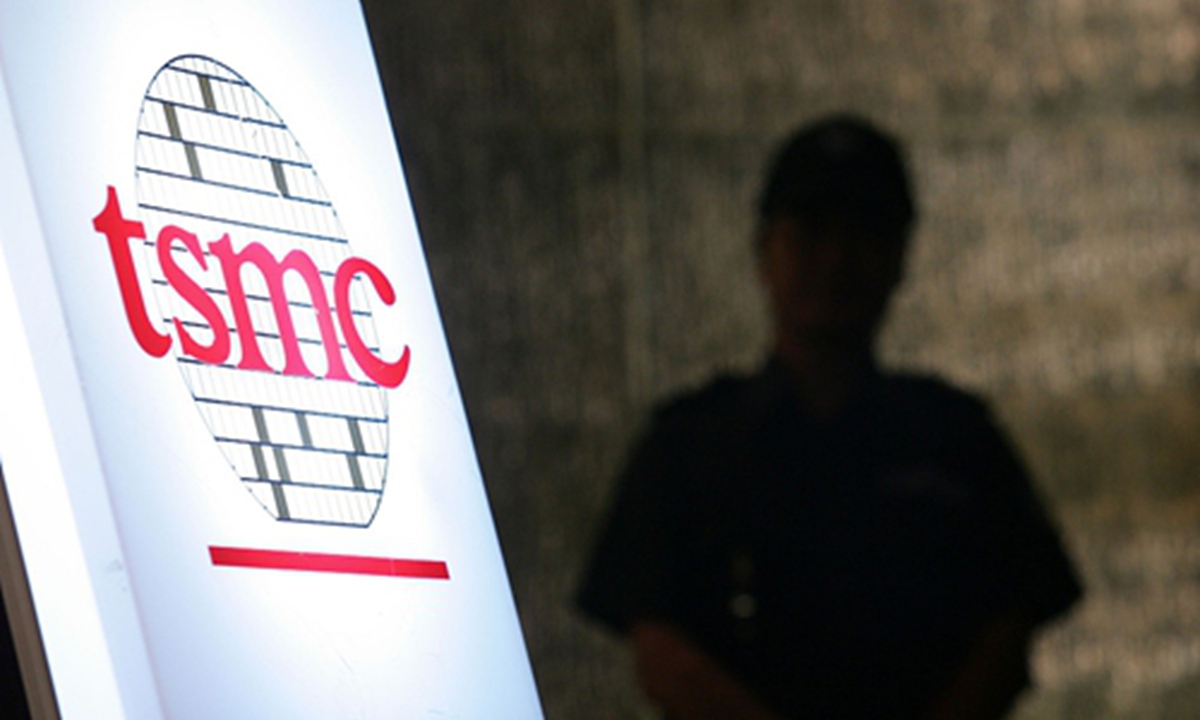
TSMC File photo
The US' ever escalating "chip war" against China has created enormous uncertainty for the world chip industry and put top chipmakers in extremely tough positions that could lead to serious losses, with the latest example being Taiwan Semiconductor Manufacturing Co (TSMC).
TSMC has suspended production of advanced silicon for Chinese startup Biren Technology to ensure compliance with the US ban, Bloomberg reported on Sunday, citing an unidentified person familiar with the matter.
The decision is connected with information in the public domain that Biren's products outperform Nvidia Corp's A100 chips, which are now banned for the Chinese market, according to the report.
In a statement sent to the Global Times on Monday, TSMC, which is based in the island of Taiwan, declined to comment on individual customers and stressed that "every region is important to TSMC."
"Under the condition of full compliance with all the rules and regulations, TSMC will continue to serve all customers all over the world," TSMC CEO C.C. Wei was quoted as saying in the statement.
It is estimated that in addition to Biren Technology, more and more companies that use TSMC's production lines to produce chips may also face the US' ban, an industry insider told the Global Times on condition of anonymity.
"Clearly, TSMC does not want to be pushed around either… if its customers are all from AMD and NVIDIA in the US, its good days may come to an end due to the lack of fair competition and the risk of losing the edge in its major terminal market - the Chinese mainland," the person noted.
Ma Jihua, a veteran industry analyst, told the Global Times on Monday that the US' chip restrictions will "muddy the waters" for TSMC and cause difficulties for the company.
"It is impossible for TSMC to completely cut off the supply for companies from the Chinese mainland, at least in the short term, because it will have a big impact [on its business]," Ma said.
In the context of the US' chip war, shrinking global demand and China's efforts in strengthening self-production of chips, China's integrated circuit imports dropped by nearly 13 percent in the first nine months, data released by the General Administration of Customs showed on Monday.
While the US is TSMC's largest client, providing a major part of the company's income, the Chinese mainland remains the world largest chip buyer and consumer.
In 2021, Chinese mainland companies bought $400 billion worth of chips, accounting around 60 percent of the world chip market. Industry giants in the US and South Korea need the Chinese market to sustain their global businesses, experts said.
The chip industry chain needs global participation for a win-win outcome, and a chip war has no beneficiaries as it will also hurt US companies, Ma said.




